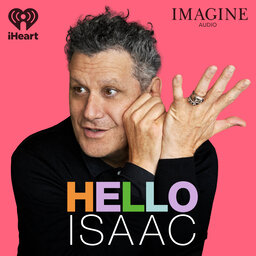World-Renowned French Chef, Jacques Pépin
Isaac Mizrahi chats with Jacques Pépin about his must-have kitchen tool, how the food industry has evolved, what he wants as his last meal and more.
Follow Hello Isaac on @helloisaacpodcast on Instagram and TikTok, Isaac @imisaacmizrahi on Instagram and TikTok and Jacques Pépin on Instagram @jacquespepinfoundation.
(Recorded on June 20, 2023)
 Hello Isaac with Isaac Mizrahi
Hello Isaac with Isaac Mizrahi


